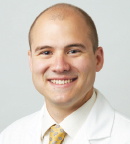In patients with locally advanced rectal cancer, the delivery of all radiotherapy and chemotherapy neoadjuvantly—with a shorter course of radiation—may improve the chance of complete response and downstaging over conventional treatment, according to investigators from Washington University, St. Louis.
“Our conclusion is that short-course total neoadjuvant therapy is at least as effective as chemoradiation. We think over time, it will outperform it,” said William Chapman, Jr, MD, MPHS, of Washington University, who presented the study findings at the 2019 Gastrointestinal Cancers Symposium.1

Short-course total neoadjuvant therapy is at least as effective as chemoradiation. We think over time, it will outperform it.— William Chapman, Jr, MD, MPHS
Tweet this quote
In the United States, the standard treatment of rectal cancer is trimodal, typically involving chemoradiation followed by surgery, and then adjuvant chemotherapy, usually with an oxaliplatin-based regimen. The radiation regimen is usually around 50 Gy administered over 5.5 weeks. Most patients are treated for 1 year or so, “treatment delays notwithstanding,” he said.
Under the new treatment regimen for locally advanced rectal cancer, short-course total neoadjuvant therapy, radiation oncologists altered the conventional trimodal approach to give hypofractionated radiation at 25 Gy over 5 consecutive days. This treatment was followed by 3 to 6 months of oxaliplatin-based neoadjuvant chemotherapy, then surgery.
The regimen shortens the overall treatment course by approximately 2 months and is anecdotally better tolerated, according to Dr. Chapman. The purpose of the study was to document outcomes with the short-course of radiation in a total neoadjuvant therapy regimen, which has become the preferred approach at his center, he said.
Study Details
The retrospective cohort study contained 388 eligible patients who had undergone neoadjuvant therapy followed by total mesorectal excision for stage II or III rectal cancer from 2009 to 2018. Concurrent chemoradiation recipients (50–55 Gy in 25–32 fractions with concurrent fluorouracil [5-FU] or capecitabine) comprised a single cohort; the other cohort included patients who received short-course radiation with total neoadjuvant therapy (25–35 Gy in 5 fractions followed by neoadjuvant CAPOX [capecitabine, oxaliplatin] or FOLFOX [leucovorin, 5-FU, oxaliplatin] chemotherapy).
Researchers sought to compare the pathologic complete response rate, the neoadjuvant rectal (NAR) score—a validated predictor of outcome based on tumor downstaging—and the recurrence rate between the two cohorts. The primary outcome of pathologic complete response rate was assessed in a univariate analysis; the secondary outcome of NAR score was calculated and categorized as low (< 8), intermediate (8–16), or high (> 16). Recurrence rates were measured and classified as local, distant, or both. Disease-free survival was also compared.
A total of 236 patients (60.8%) were treated with concurrent chemoradiation, and 152 patients were treated with short-course radiation with total neoadjuvant therapy.
Study Findings
On a univariate analysis, the short-course radiation with total neoadjuvant therapy cohort was found to have more advanced disease (stage III ,77% vs 67%; P = .04) and more N2 disease (36.8% vs 17.4%; P < .01). “This is largely because, when we first started using this regimen, we were limiting the treatment to patients with bulky or advanced nodal disease. That has changed over time,” he explained.
“Despite the patients having more advanced underlying disease, with a shorter treatment course we saw a trend toward better downstaging and improved disease-free survival,” Dr. Chapman reported. Patients treated with short-course radiation with total neoadjuvant therapy achieved a numerically higher pathologic complete response rate than did those treated with concurrent radiation (25% vs 19%, P = .16) and were more likely to have a low NAR score (36% vs 28%; P = .07).
“Neither of them is statistically significant, but we do believe these trends are moving toward a significant difference, with higher downstaging achieved by the short-course regimen,” he said.
Short-Course Radiation with Total Neoadjuvant Therapy
- Individuals with locally advanced rectal cancer treated with short-course radiation and total neoadjuvant therapy were numerically more likely to achieve pathologic complete response than patients treated with conventional chemoradiation.
- Achievement of a low neoadjuvant rectal score was more likely among the short-course radiation with total neoadjuvant therapy cohort than the conventional therapy cohort.
- Recurrence rates were not compromised by the shorter treatment course.
Over comparable follow-up of more than 1 year, recurrence rates at any site were similar for the short-course radiation with total neoadjuvant therapy cohort vs the conventional cohort (14.9% vs 14.3%; P = .87). “When we break this down by the type of recurrence, you can see that although we achieve good local control in both treatment arms, our systemic recurrence rates are still 10% to 12%, which is higher than we’d like to see,” he added.
Disease-free survival was similar, approximately 80% for both arms at 1,800 days, though the experimental cohort had a much greater nodal disease burden. In the subgroup of patients eligible for the PROSPECT study (Alliance N1048), who have locally advanced rectal cancer with better prognostic factors, short-course radiation with total neoadjuvant therapy “appears to be outperforming chemoradiation…, and we think over time, the two -[Kaplan-Meier] curves are going to diverge significantly,” he predicted.
Additional Commentary
Co-investigator Parag J. Parikh, MD, Director of Magnetic Resonance–Guided Radiation Therapy and Gastrointestinal Radiation Oncology at Henry Ford Hospital, Detroit, commented in an interview: “The study adds increasing experience to the role of short-course radiation as part of the

There is increasing evidence that we can save patients 1 month of life by reducing the length of radiation therapy.— Parag J. Parikh, MD
Tweet this quote
care of the North American patient with rectal cancer.” It joins the recently published phase III randomized study from Poland2 showing improved overall survival with this type of regimen, the recently completed RAPIDO study3 from the Netherlands, and the STELLAR study4 from China, he said.
“There is increasing evidence that we can save patients 1 month of life by reducing the length of radiation therapy,” Dr. Parikh noted. “NRG Oncology is considering adding this arm to its ongoing total neoadjuvant therapy study (NRG GI-002), which would allow further dissemination of this regimen.”■
DISCLOSURE: Dr. Chapman has stock or other ownership interest in Allergan. Dr. Parikh has received research funding from ViewRay Inc, has intellectual property licensed to Varian Medical, has an ownership interest in Nuvaira, Inc, and has received travel expenses from IBA.
REFERENCES
1. Chapman W, Kim H, Bauer P, et al: Total neoadjuvant therapy with short course radiation compared to chemoradiation in rectal cancer. 2019 Gastrointestinal Cancers Symposium. Abstract 486. Presented January 19, 2019.
2. Bujko K, Wyrwicz L, Rutkowski A, et al: Long-course oxaliplatin-based preoperative chemoradiation versus 5 × 5 Gy and consolidation chemotherapy for cT4 or fixed cT3 rectal cancer: Results of a randomized phase III study. Ann Oncol 27:834-842, 2016.
4. Jin J, Tang Y, Liu S, et al: Short-term radiotherapy plus chemotherapy versus long-term chemoradiotherapy in locally advanced rectal cancer (STELLAR): A planned interim analysis. Ann Oncol 29(suppl 8), 2018. Abstract 496P. Available at https://doi.org/10.1093/annonc/mdy281.043. Accessed March 5, 2019.



